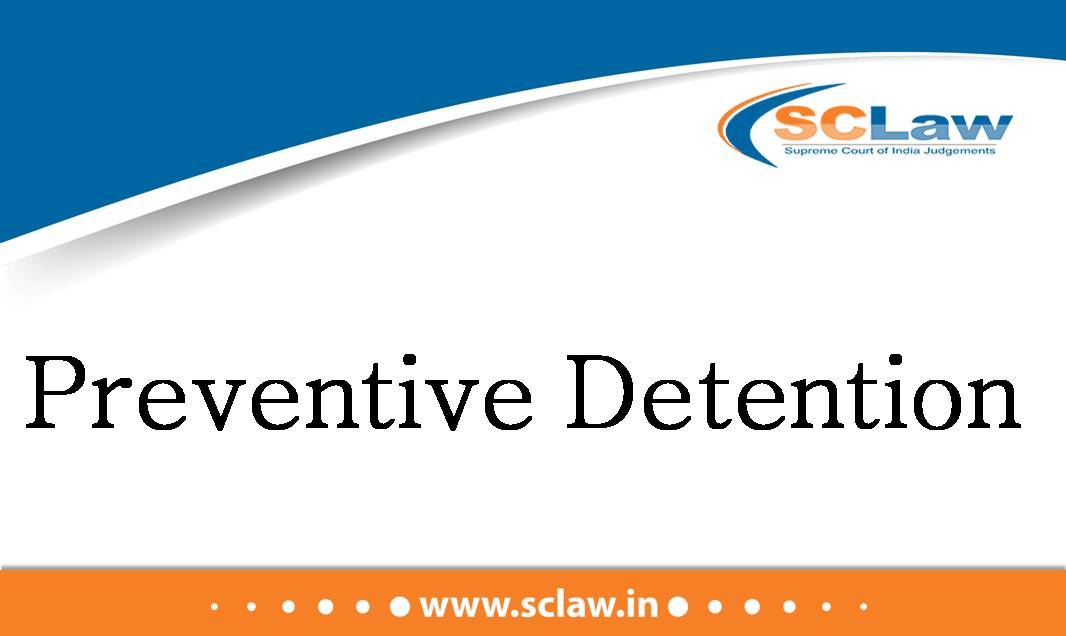Constitution of India, 1950 – Article 22(4) – National Security Act, 1980 – Section 3(2) – Disaster Management Act, 2005 – Section 53 – Epidemic Diseases Act, 1897 – Section 3 – Penal Code, 1860 (IPC) – Sections 274, 275, 308, 420 and 120B -Failure in timely communication of the rejection of representation is a relevant factor for determining the delay that the detenu is protected against under Article 22(5) – Based on the precedents of this Court – Failure of the Central and the State Government to communicate the rejection of the appellant’s representation in a time-bound manner is sufficient to vitiate the order of detention – Order of detention quashed and set aside – Appeal allowed.
SUPREME COURT OF INDIA FULL BENCH SARABJEET SINGH MOKHA — Appellant Vs. THE DISTRICT MAGISTRATE, JABAIPUR AND OTHERS — Respondent ( Before : Dr. Dhananjaya Y. Chandrachud, Vikram Nath and…

